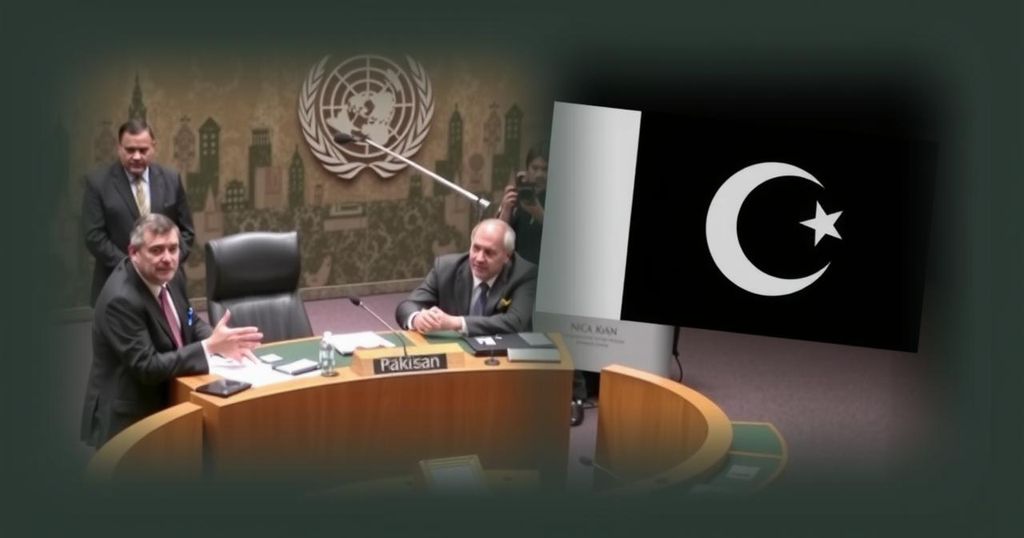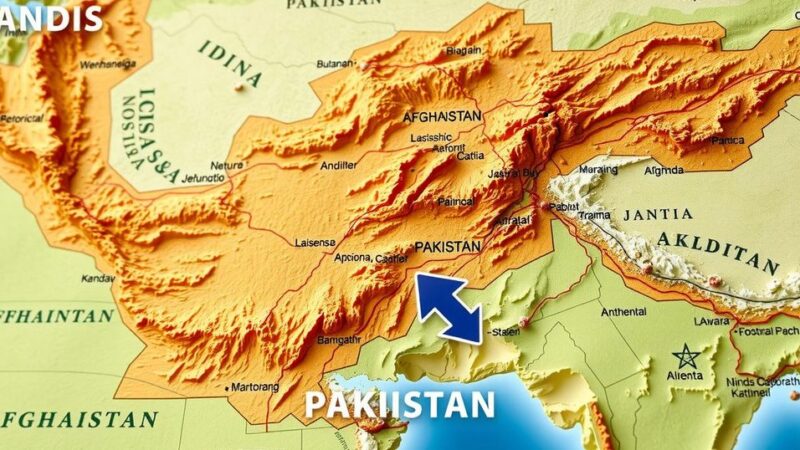Pakistan commenced its two-year term as a non-permanent member of the UNSC on January 1, 2025, receiving 182 votes from the General Assembly. It will preside over the council in July 2025 and participate in the ISIS and Al Qaeda Sanctions Committee. Ambassador Munir Akram affirmed Pakistan’s commitment to addressing geopolitical issues, including the Kashmir dispute, throughout its term, which will conclude on December 31, 2026.
On January 1, 2025, Pakistan commenced its two-year term as a non-permanent member of the United Nations Security Council (UNSC). This appointment marks Pakistan’s eighth term on the Council, succeeding Japan as the Asian representative. Pakistan secured its place with a substantial backing of 182 votes from the 193-member General Assembly, exceeding the necessary two-thirds majority. The term is set to run until December 31, 2026, during which Ambassador Munir Akram emphasized Pakistan’s commitment to an “active and constructive” role in addressing global challenges.
In July 2025, Pakistan will assume the presidency of the UNSC, enabling it to shape the Council’s agenda. Furthermore, it will be a participant in the Islamic State (ISIS) and Al Qaeda Sanctions Committee, an essential body responsible for the designation of terrorist entities and the implementation of sanctions. Ambassador Akram highlighted the pressing global issues that Pakistan intends to tackle during its tenure, including geopolitical tensions, ongoing conflicts in Europe, the Middle East, and Africa, along with rising military arsenals among nations.
Significantly, Pakistan’s term occurs during a period marked by regional crises, including the longstanding Kashmir dispute and the political turbulence in Central and West Asia. Ambassador Akram reaffirmed Pakistan’s dedication to bringing attention to the Kashmir issue on the international stage and urged global powers to take substantial steps towards resolution. This newly assumed role underscores Pakistan’s aspiration to promote peace, dispute resolution, and multilateral collaboration in combating terrorism during its time on the UNSC.
Pakistan has a long-standing history of engagement with the United Nations Security Council, which plays a pivotal role in maintaining international peace and security. As a non-permanent member, Pakistan not only brings its perspectives and experiences to the Council but also engages in collective decision-making on critical global issues. The UNSC is composed of fifteen members, five of whom are permanent, and the non-permanent members serve two-year terms, providing opportunities for countries like Pakistan to influence international policy and contribute to global governance.
In conclusion, Pakistan’s newly initiated two-year term as a non-permanent member of the United Nations Security Council marks an important chapter in its diplomatic efforts to address both global and regional challenges. With a commitment to promote peace and security, Pakistan aims to highlight critical issues such as the Kashmir dispute while also serving on key committees to combat terrorism. The proactive stance of the current administration signals an intent to engage constructively with international partners in pursuit of shared goals.
Original Source: currentaffairs.adda247.com







